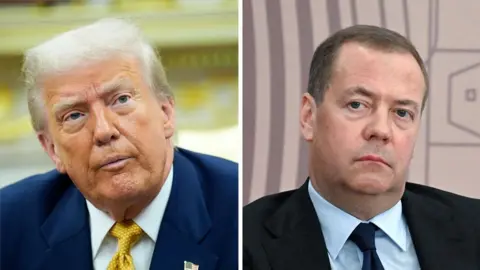Switzerland Hit By Europe's Highest US Tariffs
Switzerland's Staggering Blow: Tariffs Higher Than Syria and Laos?
Imagine a nation, renowned globally for its precision, prosperity, and unwavering stability, suddenly facing **US tariffs** that rank among the highest on Earth. We're not talking about nations embroiled in conflict or struggling economies. We're talking about Switzerland.
This isn't a drill. On a day meant for patriotic celebration, Switzerland was slapped with a **punitive 39% tariff** on its exports to the United States. A crushing blow that's not just "worse than the worst-case scenario"—it makes Switzerland home to Europe's highest tariffs, and globally, the fourth highest, behind only Syria, Laos, and Myanmar. (Though, a 50% threat from President Trump could soon propel Brazil to the top of that grim list.)
This unprecedented economic shock isn't just dominating Swiss headlines; it’s a stark reminder of the volatile shifts in global trade. And it leaves many asking: How did a neutral, economically powerful nation find itself in such a precarious position? And what does this mean for the future of international commerce? Keep reading to uncover the dramatic story of dashed hopes and desperate measures.
 From Confidence to Crisis: A Swift Reversal of Fortune
Just weeks ago, the mood in Bern was brimming with confidence. Switzerland's government, often seen as a quiet orchestrator of international diplomacy, had played host to a pivotal US-China meeting in Geneva, aiming to avert a colossal trade war. This high-stakes gathering allowed Swiss President Karin Keller-Sutter a crucial, smiling handshake with US Trade Secretary Scott Bessent.
She emerged optimistic, hinting that Switzerland was next in line after the UK for a coveted trade deal with Washington. The whisper in the air? A tempting 10% tariff offer, a far cry from the **31% Trump** had initially unveiled for Switzerland on his "liberation day" in April. Hopes soared; a favorable agreement seemed within reach for this vital European economy.
But those glittering illusions were about to be brutally shattered.
From Confidence to Crisis: A Swift Reversal of Fortune
Just weeks ago, the mood in Bern was brimming with confidence. Switzerland's government, often seen as a quiet orchestrator of international diplomacy, had played host to a pivotal US-China meeting in Geneva, aiming to avert a colossal trade war. This high-stakes gathering allowed Swiss President Karin Keller-Sutter a crucial, smiling handshake with US Trade Secretary Scott Bessent.
She emerged optimistic, hinting that Switzerland was next in line after the UK for a coveted trade deal with Washington. The whisper in the air? A tempting 10% tariff offer, a far cry from the **31% Trump** had initially unveiled for Switzerland on his "liberation day" in April. Hopes soared; a favorable agreement seemed within reach for this vital European economy.
But those glittering illusions were about to be brutally shattered.
 The Midnight Call and the Crushing News
As the August 1st deadline loomed, one last, desperate telephone call between Ms. Keller-Sutter and President Trump yielded nothing but cold silence. Hours later, the hammer fell. The tariffs wouldn't be the initially threatened 31%. They were a staggering, debilitating 39%.
The Swiss newspaper *Blick* didn't mince words, declaring it the country's "biggest defeat since French victory in the Battle of Marignano in 1515." The shockwaves resonated across the nation, turning a day of planned jubilation into one of profound confusion and anger. But why this disproportionate severity?
The Deficit Dilemma: Why Trump Targeted Switzerland
The Midnight Call and the Crushing News
As the August 1st deadline loomed, one last, desperate telephone call between Ms. Keller-Sutter and President Trump yielded nothing but cold silence. Hours later, the hammer fell. The tariffs wouldn't be the initially threatened 31%. They were a staggering, debilitating 39%.
The Swiss newspaper *Blick* didn't mince words, declaring it the country's "biggest defeat since French victory in the Battle of Marignano in 1515." The shockwaves resonated across the nation, turning a day of planned jubilation into one of profound confusion and anger. But why this disproportionate severity?
The Deficit Dilemma: Why Trump Targeted Switzerland
 The central figure in this unfolding drama is the **trade deficit**. President Trump views these imbalances—where a country sells more to the US than it buys—as an inherent problem for American industry and job security. This perspective, though widely debated by economists, became the immovable obstacle for Swiss negotiators.
In 2024, the **Swiss trade deficit with the US** for goods stood at a hefty $47.4 billion. Even when including the service industries—a factor Trump conveniently overlooked—the deficit remained a significant $22 billion. Switzerland, a powerhouse of high-value manufacturing, consistently sells more to the US than it purchases, primarily exporting:
* **Pharmaceuticals:** Life-saving drugs and cutting-edge medical technology.
* **Gold Jewellery:** Exquisite craftsmanship and precious metals.
* **Luxury Watches:** Iconic timepieces that define precision and status.
* **Machine Tools:** Advanced industrial equipment fueling American factories.
To counter this, Switzerland had already gone to extraordinary lengths.
The central figure in this unfolding drama is the **trade deficit**. President Trump views these imbalances—where a country sells more to the US than it buys—as an inherent problem for American industry and job security. This perspective, though widely debated by economists, became the immovable obstacle for Swiss negotiators.
In 2024, the **Swiss trade deficit with the US** for goods stood at a hefty $47.4 billion. Even when including the service industries—a factor Trump conveniently overlooked—the deficit remained a significant $22 billion. Switzerland, a powerhouse of high-value manufacturing, consistently sells more to the US than it purchases, primarily exporting:
* **Pharmaceuticals:** Life-saving drugs and cutting-edge medical technology.
* **Gold Jewellery:** Exquisite craftsmanship and precious metals.
* **Luxury Watches:** Iconic timepieces that define precision and status.
* **Machine Tools:** Advanced industrial equipment fueling American factories.
To counter this, Switzerland had already gone to extraordinary lengths.
 Desperate Measures: A Small Nation's Grand Gestures
In a bid to appease Washington, the Swiss government dramatically reduced its own **tariffs on US industrial goods to zero**. Swiss corporate giants like Nestlé and Novartis, household names around the globe, also promised multibillion-dollar investments in American plants. Switzerland is, in fact, already the world's 6th largest investor in the US, proudly claiming to create over 400,000 American jobs.
Yet, balancing the gargantuan trade deficit proved to be an impossible tightrope walk. With a population of just 9 million, Switzerland simply doesn't have the internal demand to absorb enough US products to bridge the gap. Let's be frank: gas-guzzling American cars are ill-suited for winding Alpine roads, and American cheese and chocolate… well, let's just say they don't quite tantalize the sophisticated Swiss palate.
This created a diplomatic quandary: Switzerland had offered everything it could, and it still wasn't enough.
Desperate Measures: A Small Nation's Grand Gestures
In a bid to appease Washington, the Swiss government dramatically reduced its own **tariffs on US industrial goods to zero**. Swiss corporate giants like Nestlé and Novartis, household names around the globe, also promised multibillion-dollar investments in American plants. Switzerland is, in fact, already the world's 6th largest investor in the US, proudly claiming to create over 400,000 American jobs.
Yet, balancing the gargantuan trade deficit proved to be an impossible tightrope walk. With a population of just 9 million, Switzerland simply doesn't have the internal demand to absorb enough US products to bridge the gap. Let's be frank: gas-guzzling American cars are ill-suited for winding Alpine roads, and American cheese and chocolate… well, let's just say they don't quite tantalize the sophisticated Swiss palate.
This created a diplomatic quandary: Switzerland had offered everything it could, and it still wasn't enough.
 A Nation on Edge: The Clock is Ticking
"We need reliable relations with the United States," declared Jan Atteslander, head of foreign trade at EconomieSuisse, representing the heartbeat of Swiss business. This sentiment echoes the widespread frustration with an "on/off" trade policy that strips businesses of the certainty they desperately need to plan, invest, and thrive.
Across Switzerland, the mood is one of disbelief. On their national day, President Keller-Sutter, after her traditional patriotic speech, faced pointed questions from reporters. Her explanation? The talks were "good," but for Donald Trump, the trade deficit was the unyielding obstacle. The inference was clear: the US President was the problem.
Now, a small, critical window of opportunity remains until **August 7th**, when these devastating tariffs officially come into force. Until then, the Swiss government will be feverishly trying to negotiate, with Swiss businesses warning of thousands of job losses if the 39% figure isn't dramatically reduced.
A Nation on Edge: The Clock is Ticking
"We need reliable relations with the United States," declared Jan Atteslander, head of foreign trade at EconomieSuisse, representing the heartbeat of Swiss business. This sentiment echoes the widespread frustration with an "on/off" trade policy that strips businesses of the certainty they desperately need to plan, invest, and thrive.
Across Switzerland, the mood is one of disbelief. On their national day, President Keller-Sutter, after her traditional patriotic speech, faced pointed questions from reporters. Her explanation? The talks were "good," but for Donald Trump, the trade deficit was the unyielding obstacle. The inference was clear: the US President was the problem.
Now, a small, critical window of opportunity remains until **August 7th**, when these devastating tariffs officially come into force. Until then, the Swiss government will be feverishly trying to negotiate, with Swiss businesses warning of thousands of job losses if the 39% figure isn't dramatically reduced.
 But what leverage does Switzerland have left? With zero tariffs and massive investment promises already on the table, their diplomatic arsenal feels depleted. The only remaining tactics are punitive, and carry significant risk: withdrawing investment offers, introducing reciprocal tariffs, or even, in a "nuclear option," cancelling Switzerland's order for US F35 fighter planes.
The Swiss, accustomed to being masters of their own destiny, feel they are being punished for their very success—for having one of the world's most competitive and innovative economies. Some despair; others believe their renowned resilience and innovation will see them through. But as the clock ticks towards August 7th, the question remains: Can this small, wealthy nation find a way to navigate this unprecedented global trade storm, or will its future economic stability be forever altered?
But what leverage does Switzerland have left? With zero tariffs and massive investment promises already on the table, their diplomatic arsenal feels depleted. The only remaining tactics are punitive, and carry significant risk: withdrawing investment offers, introducing reciprocal tariffs, or even, in a "nuclear option," cancelling Switzerland's order for US F35 fighter planes.
The Swiss, accustomed to being masters of their own destiny, feel they are being punished for their very success—for having one of the world's most competitive and innovative economies. Some despair; others believe their renowned resilience and innovation will see them through. But as the clock ticks towards August 7th, the question remains: Can this small, wealthy nation find a way to navigate this unprecedented global trade storm, or will its future economic stability be forever altered?

Image 1

Image 2

Image 3

Image 4

Image 5

Image 6
Comments
Post a Comment